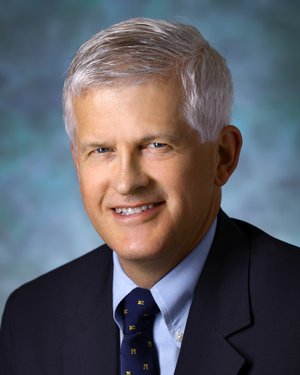Research Lab Results
-
Roger Johns Lab
Investigators in the Roger Johns Lab are examining the molecular mechanisms behind the onset and continuation of chronic pain, particularly neuropathic pain. This work has led to a better understanding of the vast network of molecules at neuronal synapses, particularly the postsynaptic density (PSD), which is key to the propagation of pain signals. We're working to develop new analgesics that interfere with the PSD protein interactions in an effort to better treat patients who suffer from chronic pain.
Principal Investigator
Department
-
Pediatric Cerebral Palsy and Epilepsy Lab
The team headed by Shenandoah “Dody” Robinson, M.D., professor of neurosurgery, neurology and pediatrics, studies perinatal brain injury and repair. Employing developmentally age-appropriate models, the lab investigates neurological consequences of extremely preterm birth, including cerebral palsy, chronic pain, cognitive and behavioral impairment, epilepsy and posthemorrhagic hydrocephalus of prematurity. -
Allan Gottschalk Lab
Research in the Allan Gottschalk Lab focuses on the mechanisms behind neuropathic pain, chronic pain related to nerve injury. We are investigating biophysical models of the impact of general anesthesia on the central nervous system; informational aspects of sensory perception and the representation of sensory input; nonlinear dynamics of respiratory pattern generation; and acute perioperative pain.
Principal Investigator
Department
-
Yun Guan Lab
Research is the Yun Guan Lab explores the peripheral, spinal and supraspinal mechanisms of chronic pain. Our long-term goal is to develop better strategies and novel targets for treatment of pathological pain conditions. Our team’s multidisciplinary research uses electrophysiological, molecular biological, immunocytochemical and behavioral pharmacological approaches to study neurobiological mechanisms of pain and hyperalgesia that occur following tissue or nerve injury. -
Sivanesan Neuromodulation Laboratory (SNL)
Work in the Sivanesan Neuromodulation Laboratory (SNL) focuses on developing electrical stimulation therapies for treating neuropathic pain conditions and discovering novel applications for patients suffering from painful conditions. We study mechanisms of all modalities of spinal cord stimulation in the laboratory and aim to rapidly translate these discoveries to patient care. This bench to bedside approach facilitates a unique integration of the latest science with the clinical care of patients.
-
The Functional Neurosurgery Lab
The studies of the Functional Neurosurgery Lab currently test whether neural activity related to the experimental vigilance and conditioned expectation toward pain can be described by interrelated networks in the brain. These two psychological dimensions play an important role in chronic pain syndromes, but their neuroscience is poorly understood. Our studies of spike trains and LFPs utilize an anatomically focused platform with high temporal resolution, which complements fMRI studies surveying the whole brain at lower resolution. This platform to analyze the oscillatory power of structures in the brain, and functional connections (interactions and synchrony and causal interactions) between these structures based upon signals recorded directly from the waking human brain during surgery for epilepsy and movement disorders, e.g. tremor. Our studies have demonstrated that behaviors related to vigilance and expectation are related to electrical signals from the cortex and subcortical structures. These projects are based upon the combined expertise of Dr. Nathan Crone in recordings and clinical management of the patients studied; Dr. Anna Korzeniewska in the analyses of signals recorded from the brain; Drs. Claudia Campbell, Luana Colloca and Rick Gracely in the clinical psychology and cognitive neurology of the expectation of pain and chronic pain; Dr. Joel Greenspan in quantitative sensory testing; and Dr. Martin Lindquist in the statistical techniques. Dr. Lenz has conducted studies of this type for more than thirty years with continuous NIH funding. -
Michael Caterina Lab
The Caterina lab is focused on dissecting mechanisms underlying acute and chronic pain sensation. We use a wide range of approaches, including mouse genetics, imaging, electrophysiology, behavior, cell culture, biochemistry and neuroanatomy to tease apart the molecular and cellular contributors to pathological pain sensation. A few of the current projects in the lab focus on defining the roles of specific subpopulations of neuronal and non-neuronal cells to pain sensation, defining the role of RNA binding proteins in the development and maintenance of neuropathic pain, and understanding how rare skin diseases known as palmoplantar keratodermas lead to severe pain in the hands and feet.



